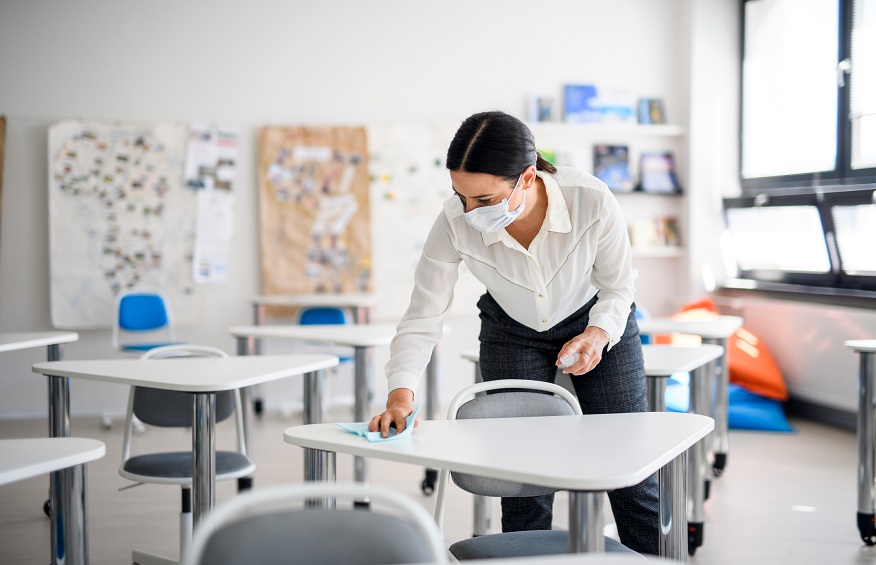
School Cleaning: Ensuring a Pristine Learning Environment
Maintaining a clean and healthy environment within educational institutions is paramount for the well-being of students, teachers, and staff. School cleaning is a multifaceted task that involves a combination of meticulous planning, effective execution, and a commitment to creating a conducive learning atmosphere. In this article, we explore the intricacies of school cleaning, with a particular focus on the unique considerations present in Little Rock and the importance of Little Rock office cleaning.
The Significance of a Clean School Environment
Student Health and Safety:
- Reducing the Spread of Illness: A clean environment helps minimize the spread of germs and illnesses, contributing to the overall health and safety of students.
- Preventing Allergies: Regular cleaning reduces allergens, creating a space that is more comfortable for students with allergies or respiratory conditions.
Academic Performance:
- Improved Concentration: A well-maintained environment promotes better concentration among students, positively impacting their academic performance.
- Positive Learning Experience: A clean and organized space enhances the overall learning experience, fostering a positive attitude toward education.
Tailoring Cleaning Strategies to School Spaces
Classrooms:
- Daily Surface Cleaning: Regularly clean desks, chairs, and other surfaces to maintain a hygienic learning environment.
- Floor Care: Implement floor care routines that include vacuuming or mopping to keep classrooms free of dust and dirt.
Cafeterias:
- Thorough Table Cleaning: Ensure thorough cleaning of cafeteria tables to prevent the buildup of food particles and maintain a sanitary eating area.
- Floor Sanitization: Regularly sanitize cafeteria floors to address spills and minimize the risk of slips or falls.
Restrooms:
- Frequent Sanitation: Implement a frequent restroom cleaning schedule to maintain cleanliness and prevent the spread of germs.
- Refillable Soap Dispensers: Use refillable soap dispensers to reduce waste and promote eco-friendly practices.
Gymnasiums and Sports Facilities:
- Specialized Floor Cleaning: Gymnasiums often have specialized flooring. Use appropriate cleaning methods to ensure longevity and cleanliness.
- Equipment Sanitization: Regularly sanitize sports equipment to create a safe and hygienic environment for physical activities.
Little Rock’s Unique Considerations in School Cleaning
Weather-Related Challenges:
- Seasonal Cleaning Adjustments: Little Rock experiences various weather conditions. Adjust cleaning plans seasonally to address challenges like mud and moisture.
- Preventing Mold Growth: Little Rock’s humid climate requires vigilant efforts to prevent mold growth, particularly in areas prone to dampness.
Localized Pest Control:
- Addressing Local Pests: Collaborate with pest control services familiar with Little Rock’s specific pests to prevent infestations.
- Green Pest Control Options: Consider eco-friendly pest control methods to align with sustainable practices.
Sustainable Cleaning Practices in Schools
Green Cleaning Products:
- Eco-Friendly Disinfectants: Use environmentally friendly disinfectants to minimize the impact on indoor air quality and the environment.
- Biodegradable Cleaners: Choose biodegradable cleaning products to reduce the ecological footprint of cleaning practices.
Energy-Efficient Cleaning Equipment:
- Smart Cleaning Devices: Invest in energy-efficient cleaning equipment that optimizes performance while minimizing energy consumption.
- Scheduled Cleaning Automation: Implement automation for scheduled cleaning during non-operational hours to conserve energy.
Collaborative Efforts with Little Rock Office Cleaning Services
Professional Expertise:
- Local Knowledge: Collaborate with Little Rock office cleaning services that possess local knowledge, understanding the unique challenges of the area.
- Adaptability to Climate Conditions: Cleaning professionals should be adaptable to the climate conditions in Little Rock, particularly during weather extremes.
Customized Cleaning Plans:
- Tailored Solutions: Work with cleaning professionals to create customized cleaning plans that address the specific needs of each school facility.
- Performance Evaluation: Regularly evaluate the performance of cleaning plans and adjust them based on feedback and changing requirements.
Empowering School Staff in the Cleaning Process
Training Programs:
- Custodial Staff Training: Provide ongoing training programs for custodial staff to ensure they are equipped with the latest cleaning techniques and best practices.
- Staff Involvement: Encourage teachers and staff to participate in maintaining cleanliness within their respective areas.
Creating a Culture of Cleanliness:
- Student Involvement: Foster a sense of responsibility for cleanliness among students through educational programs and initiatives.
- Reward Systems: Implement reward systems for classes or individuals who actively contribute to maintaining a clean environment.
Comprehensive Cleaning Checklists for School Facilities
Daily Cleaning Routines:
- Classroom Checks: Daily inspections of classrooms to address immediate cleaning needs.
- Restroom Maintenance: Frequent checks and maintenance of restrooms throughout the day.
Weekly and Monthly Cleaning Tasks:
- Deep Cleaning Sessions: Schedule deep cleaning sessions for carpets, floors, and high-touch surfaces on a weekly or monthly basis.
- Equipment Inspection: Regularly inspect and maintain cleaning equipment to ensure optimal functionality.
Conclusion
As Little Rock strives to provide quality education to its students, the role of school cleaning becomes integral to fostering a healthy and conducive learning environment. By embracing sustainable practices, tailoring cleaning strategies to local considerations, and collaborating with specialized cleaning services, educational institutions can ensure that cleanliness remains a cornerstone of the educational experience. In the heart of Little Rock, the commitment to maintaining pristine school environments becomes a testament to the collective dedication to the well-being and success of students and educators alike.


